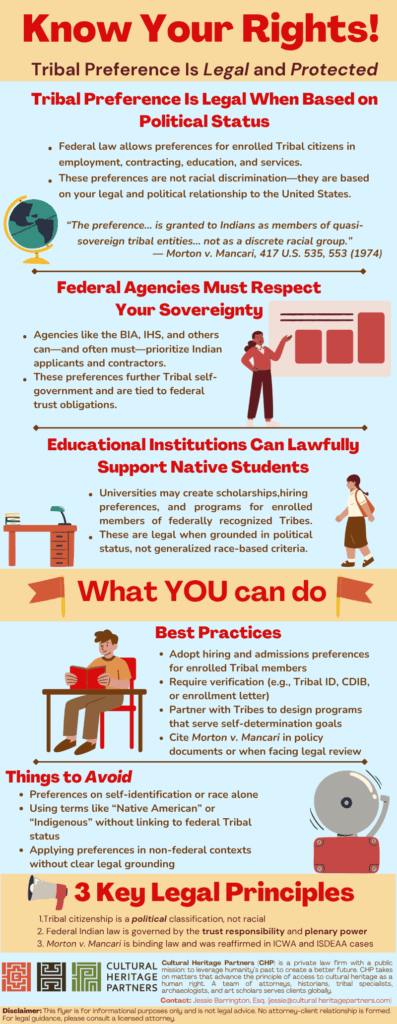Our “Know Your Rights” flyer highlights a core principle of federal Indian law: Tribal preference in hiring, contracting, and education is lawful when grounded in political status. That principle rests on the Supreme Court’s decision in Morton v. Mancari, 417 U.S. 535 (1974).
In Mancari, the Court upheld a Bureau of Indian Affairs hiring preference for enrolled Tribal citizens. It held that such a preference is a political classification, not a racial one, because it applies to members of federally recognized Tribal Nations, who are sovereign political entities in a government-to-government relationship with the United States.
This distinction remains critical. While recent decisions such as Students for Fair Admissions, Inc. v. President and Fellows of Harvard College, 600 U.S. 181 (2023), have invalidated certain race-based programs, Mancari continues to provide a strong constitutional foundation for preferences tied to Tribal citizenship. When designed to further Tribal self-governance and fulfill the federal trust responsibility, these programs remain firmly within the bounds of the law.
For Tribal governments, federal agencies, and partner institutions, Mancari underscores the importance of linking preferences to verified Tribal citizenship and to federal obligations, rather than to broad racial categories. This approach ensures compliance while advancing the sovereign rights and priorities of Tribal Nations.
